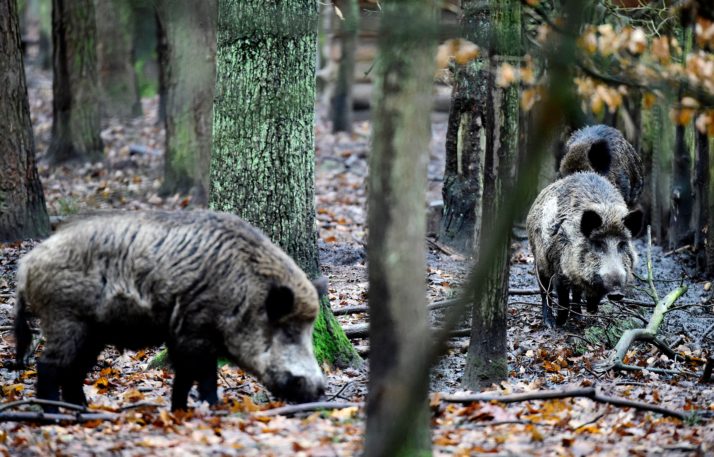Reuters Health News Round Up: African Swine Fever; breast cancer; Bayer; Merck KGaA; ovarian cancer

China finds first cases of African Swine Fever in country's south
China's three-month-old outbreak of African Swine Fever has spread for the first time to the country's south, its major pork-consuming region, after authorities on Sunday reported two cases in southwest Yunnan province. The news comes as China enters its peak pig production period ahead of the country's most important festival, the New Year holiday, which will be held in early February 2019.
Roche scores win in slowing aggressive type of breast cancer
An immunotherapy cocktail from Roche helped slow an aggressive type of breast cancer where new treatments have proven elusive, offering positive news for the Swiss drugmaker as it chases medicines produced by its rivals. Trial data released on Saturday shed light on the treatment of triple-negative tumours, which affect 15 per cent of breast cancer patients, typically affecting younger-than-average women.
Roche takes on Loxo, Bayer in gene-defined cancer class
Roche's entreating cancer pill was shown to shrink tumours in 57 per cent of patients within a group that can only be identified via genetic profiling, as the Swiss drugmaker challenges an alliance of Bayer and Loxo Oncology in a new targeted treatment area. The trial results on patients with a gene anomaly known as NTRK fusion, which occurs in less than 1 per cent across a range of tumour types, were presented at the annual congress of the European Society for Medical Oncology (ESMO) in Munich on Sunday.
Merck KGaA says might strike partnership deal this year
German drugmaker Merck KGaA might agree on partnership deals to jointly develop two of its most promising experimental medicines with a rival as early as this year, but more likely in 2019, its drug research and development chief said on Sunday. "It's possible even as early as the end of the year but that's really a stretch - or sometime in 2019," Luciano Rossetti told Reuters at the annual congress of the European Society for Medical Oncology in Munich on Sunday.
Novartis drug cut death risk by 35 per cent in gene mutation breast cancer
An experimental cancer drug that Novartis hopes will raise the profile of its oncology portfolio cut the risk of death or disease progression by more than a third in breast cancer patients with a hard-to-target gene mutation. The Swiss drugmaker's BYL719, a so-called PI3K inhibitor also known as alpelisib, combined with hormone therapy fulvestrant boosted median progression-free survival (PFS) to 11 months, up from 5.7 months for patients who got only hormone therapy, the company said on Saturday.
AstraZeneca's Lynparza shown to put brakes on ovarian cancer
An AstraZeneca drug that blocks a cancer cell's ability to repair its genetic code greatly reduced the risk of ovarian cancer worsening in a phase III trial, underpinning its lead against two U.S. rivals in the same class. Given as a maintenance therapy to reinforce initial chemotherapy, Lynparza halted or reversed tumour growth in 60 per cent of patients three years into the trial. Only 28 per cent of those in a chemotherapy-only control group were spared tumour progression at that stage.
(With inputs from agencies.)
- READ MORE ON:
- credit reporting agencies
- world economic news
- political news today
- latest economic news
- google trending news
- cancer patients
- percent of breast cancer
- ovarian cancer
- cancer cell's
- percent of patients
- experimental cancer drug
- aggressive type of breast cancer
- gene-defined cancer class
- Roche's entrectinib cancer pill
- Loxo Oncology










